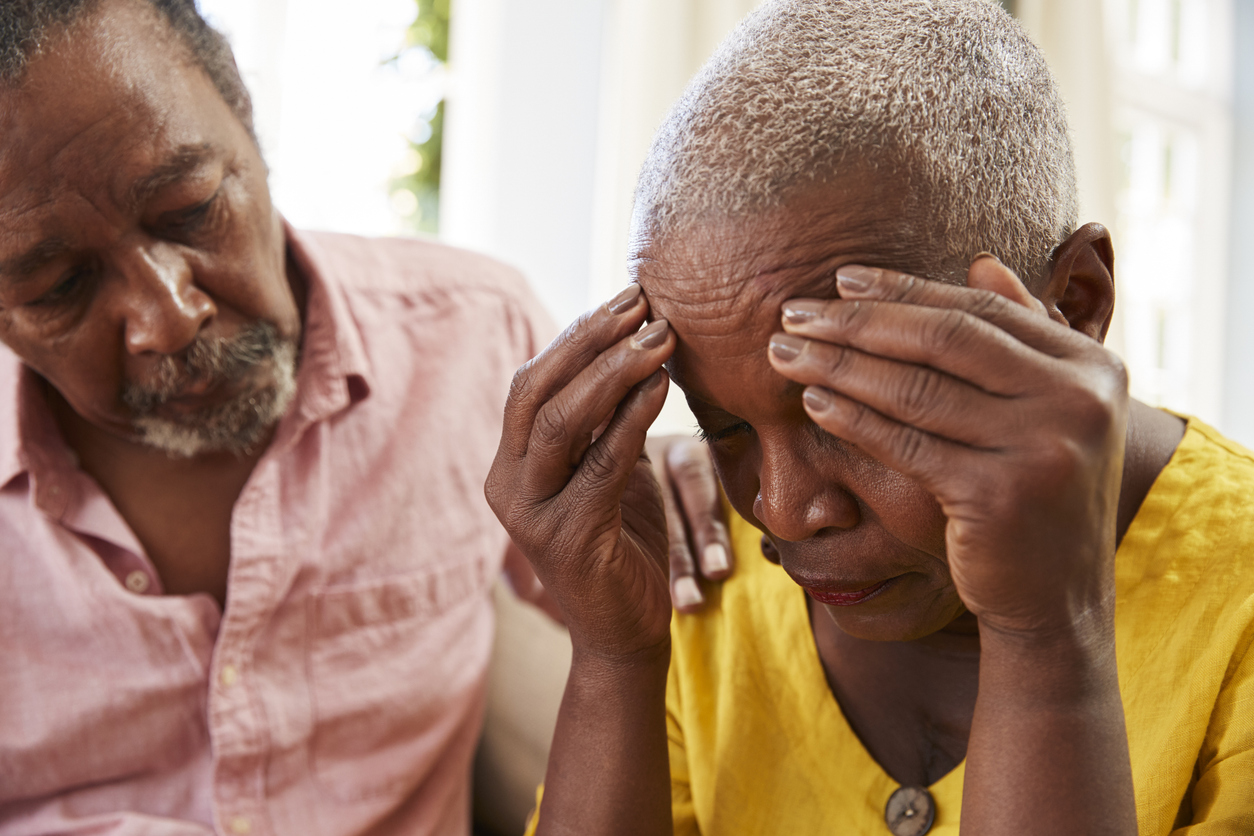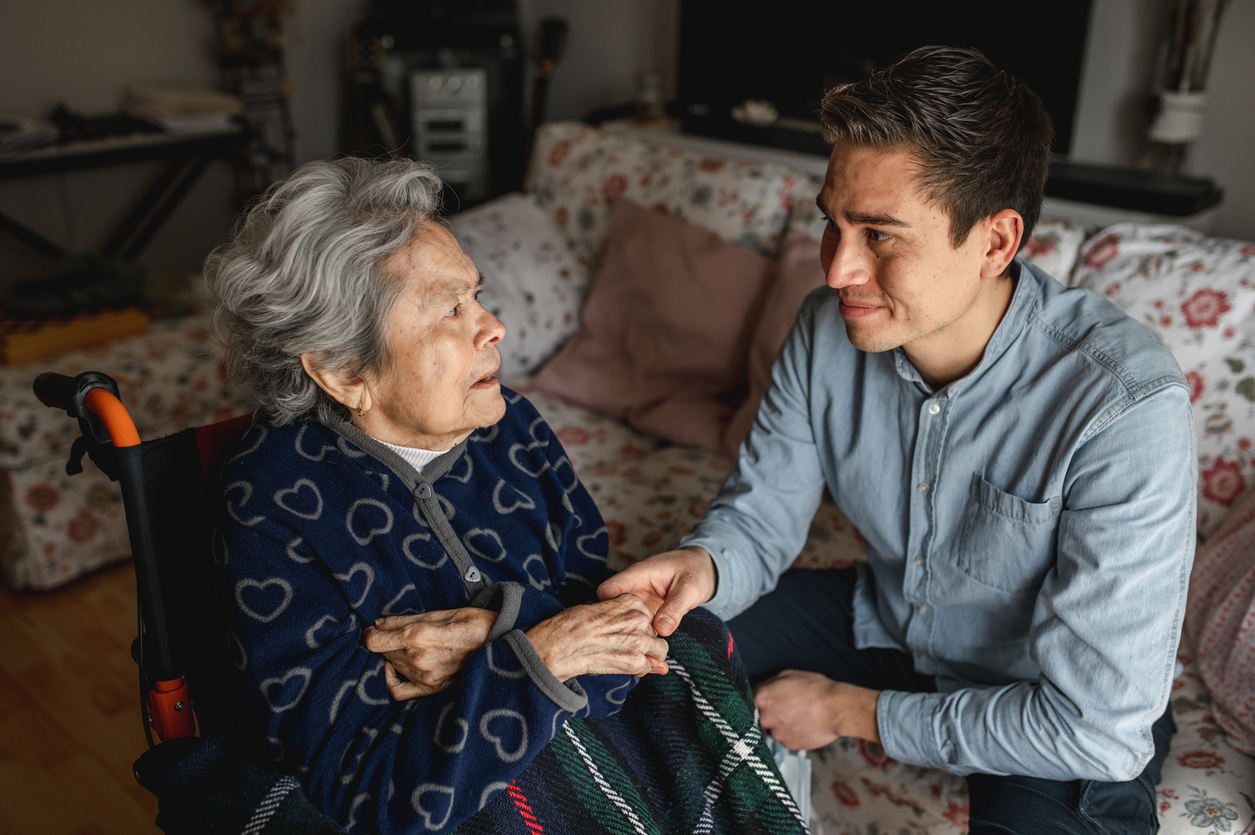
Aging is a natural part of life, and with it comes changes in physical and cognitive abilities. However, distinguishing between aging and the early signs of dementia can be challenging for family caregivers. Understanding normal signs of aging vs. dementia indicators is important.
Signs of Normal Aging

Normal aging often brings subtle changes in memory, focus, and physical ability. These changes might include:
- Occasional forgetfulness: Misplacing common items, such as keys or glasses, but remembering later where you placed them.
- Slower processing: Taking longer than usual to recall information or learn new skills.
- Mild word-finding difficulty: Occasionally struggling to find the right word during conversation.
- Decreased multitasking ability: Finding it harder to juggle multiple tasks but still completing them one at a time.
These changes do not interfere significantly with the senior’s daily life. They are usually manageable with minor adjustments. The senior might use phone or calendar reminders, pill boxes, and other organizational tools.
Signs of Dementia

Dementia is a progressive condition that impacts memory, thinking, and behavior beyond normal aging. Signs to watch for include:
- Memory loss affecting daily life: Forgetting recent events, conversations, or important dates and not recalling them later. This is sometimes one of the first indicators of early stages of dementia.
- Difficulty completing familiar tasks: Trouble with day to day activities, such as cooking, maintaining a healthy diet, or paying bills.
- Language problems: Repeatedly forgetting simple words or substituting words, making communication hard to understand.
- Disorientation: Getting lost in familiar places or not knowing the time, date, or season.
- Poor judgment: Making unusual decisions, such as giving away large sums of money.
- Behavioral changes: Increased irritability, depression, or withdrawal from social activities.
If you notice these signs, it’s important to consult a healthcare provider for a thorough evaluation. Only a medical professional can determine if changes might be related to cognitive decline, Alzheimer’s disease, or other types of dementia. Early intervention can improve the quality of life for individuals with dementia. Enlisting support from doctors, nurses, social workers, and in-home care professionals can make it easier for your loved one to realize their goals and remain safe and healthy.
Tracking Normal Signs of Aging vs. Dementia

Keeping track of cognitive and behavioral changes is essential. This step helps you understand whether your loved one’s experiences are part of normal aging or indicative of dementia. Here are some strategies:
- Maintain a journal: Record any noticeable changes in memory, behavior, or abilities over time. These notes provide a record of the extent of changes. The information is especially helpful when shared with the senior’s doctor and other care providers.
- Use standardized tools: Consider using memory screening checklists or cognitive assessment apps. Ask your loved one’s doctor for recommendations or to perform a medical assessment.
- Schedule regular check-ups: Annual health check-ups can help identify issues early. Ideally, have your aging loved one see a doctor at least once a year or every 4-6 months if you are noticing decline.
- Communicate with other caregivers: Discuss concerns and ideas with family and professional caregivers. This helps you to stay focused on goals and get a well-rounded picture of the senior’s needs.
Coping with Normal Signs of Aging vs. Dementia

Whether dealing with normal aging or dementia, supporting your loved one is key to maintaining their quality of life:
- Create a structured routine: Predictable daily activities help minimize confusion and stress.
- Encourage mental stimulation: Activities like puzzles, reading, or learning new skills can help maintain cognitive function.
- Promote physical activity: Regular exercise supports overall brain health.
- Foster social connections: Staying socially engaged reduces isolation and enhances emotional well-being.
- Offer gentle reminders: Use calendars, notes, or digital reminders to assist with memory lapses.
- Be patient and understanding: Changes can be frustrating for both seniors and caregivers. Approach interactions with empathy and reassurance.
When to Seek Professional Support
If cognitive changes become pronounced or interfere with daily living, it’s time to seek professional support. A doctor can assess the situation, provide a diagnosis, and recommend treatment or management strategies. Additionally, in-home care services, respite care, or dementia care provides valuable support. These programs benefit both seniors and their caregivers.
By watching for and understanding the signs of aging vs. dementia, family caregivers can better support seniors. This knowledge helps them confidently meet the needs of older adults.
Salus is here to provide attentive care to seniors. Our caregivers help seniors navigate life’s changes and continue to live fulfilling lives. Contact us anytime with questions or to schedule a free evaluation.
